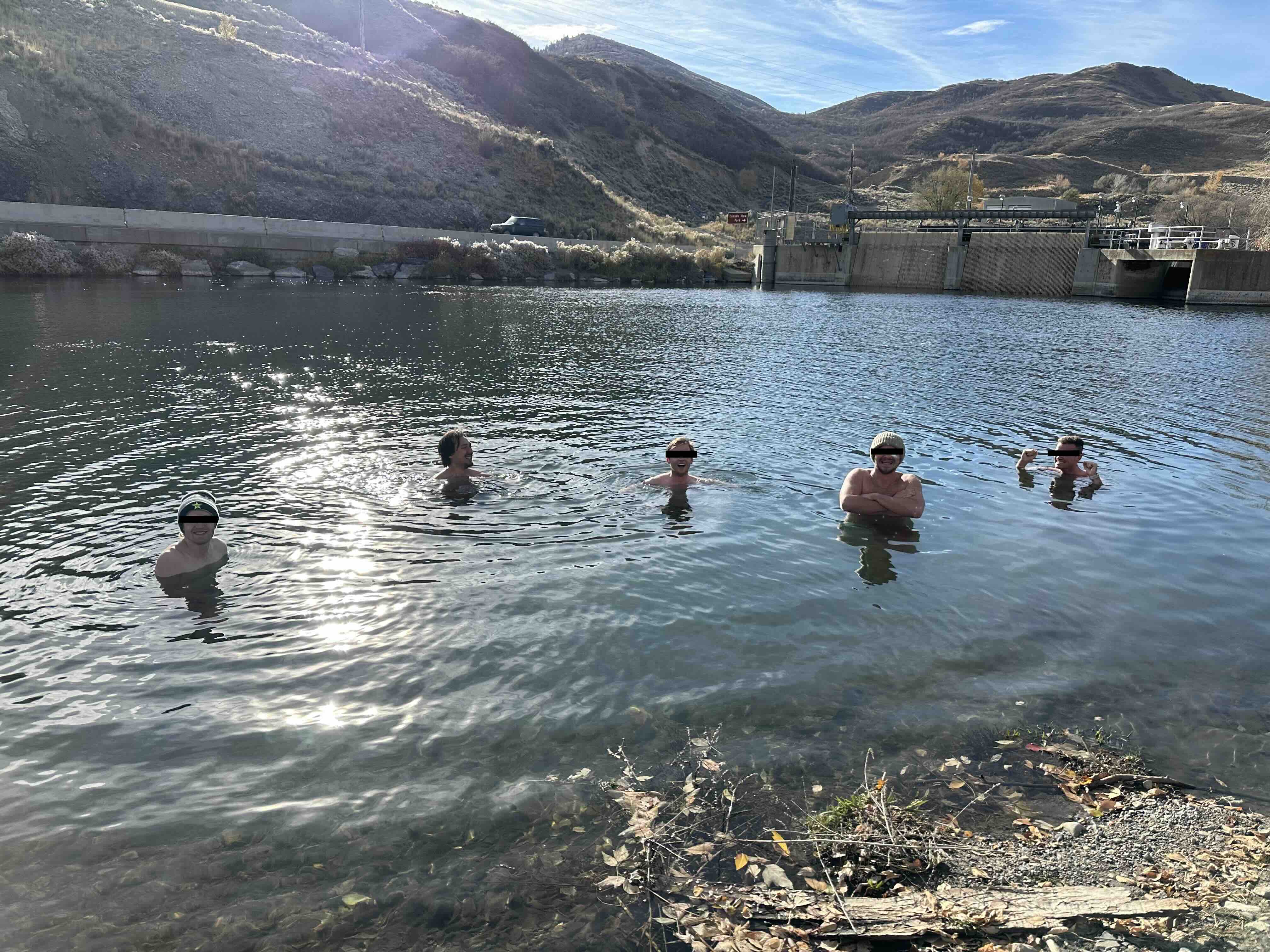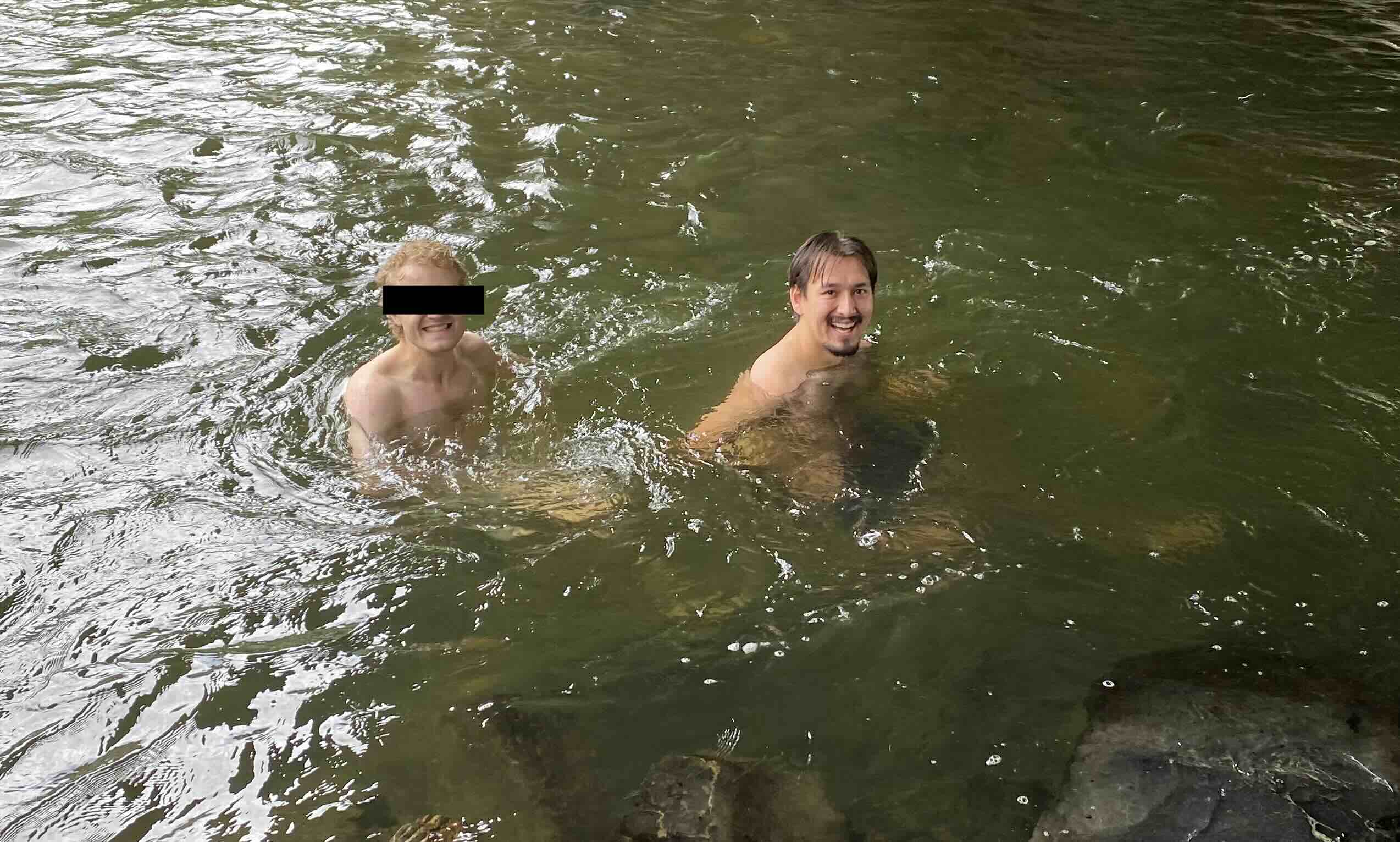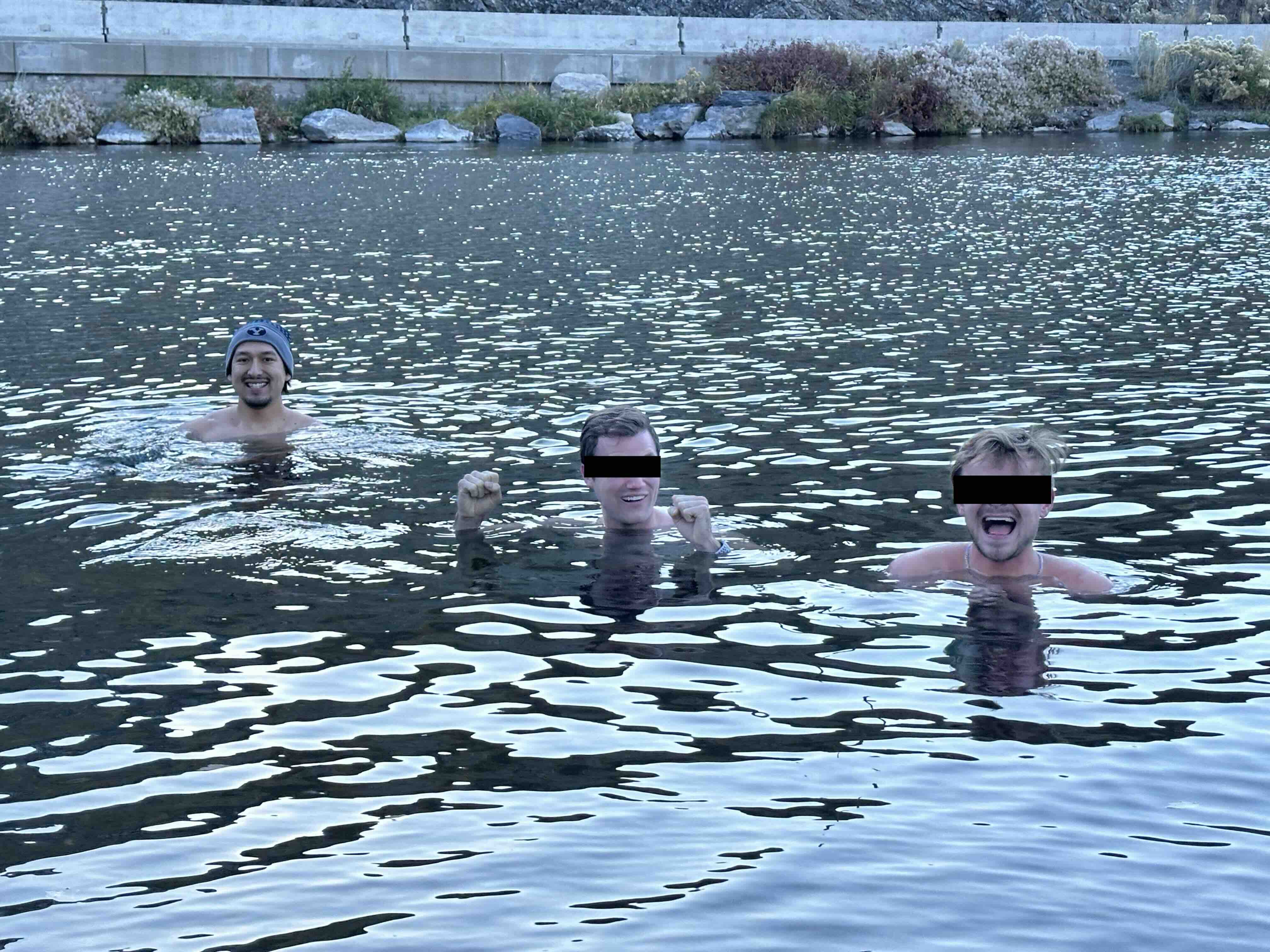Cold Water Therapy

After reading the book, Chill: The Cold Water Swim Cure I was pretty convinced of the efficacy of cold water therapy. To be frank, I don’t actually recommend buying the book or even reading it if you read this blog post. The author of the book is MD. PhD. Mark Harper who is an anesthesiologist. Dr. Harper presents his research findings surrounding cold water therapy and surgery recovery alongside different less relevant (and less interesting) anecdotal stories promoting cold water therapy.
Alleged Benefits
Dr. Harper claims that people who swim in open water or participate in cold water therapy on a weekly basis have an increased ability to regulate their core body temperature and thus recovered from surgery faster than normal. Core body temperature regulation is particularly important while recovering from surgery because of the fact that under general anesthesia the body loses its ability to keep itself warm. This can be dangerous for obvious reasons like hypothermia, but studies have shown that for every 1.9 degrees celsius below body temperature there is 3 times the risk of infection.
1st Time Is Fine, 2nd Is The Worst, 3rd Time Is Addictive
Convinced by Dr. Harper, I decided to start swimming in the local river late in late July with the goal of acclimating to the cold water by the time winter rolled around. Joined by my good friend fosscat, we made our way to the Provo river. In July 2023 the Provo river had an average temperature of ~55 degrees F. 🥶 In the book, Dr. Harper says that the first time is easy because you’re filled with anticipation and excitement to try something new. Regardless, fosscat and I had a pretty rough time. After a quick run we set the timer to 10 minutes and with camp stoves boiling our tea we giggled our way into the water.
The next week we did the same and it was far worse. Maybe it was the overcast weather or just knowing just how much pain we were in for.

The third week was even harder to get in the water, but after getting out I started to understand the reason why people enjoy swimming in cold water.
My last cold plunge of the year was November 11th 2023 where the water reached a frigid 42 degrees F.
The Physical & Mental Aspects
Ok, so I’ve talked a lot about Dr. Harper this Dr. Harper that, and I’m not trying to discredit his work, but I kinda think that personally the core temperature regulation thing is kinda bogus. Maybe I felt a little more resilient to the cold this winter, but I think that it’s purely placebo. My Whoop fitness tracker, which I always wore when doing a cold plunge found a negative correlation between “ice baths” and my recovery. Around -6%. Did the cold water help with muscle soreness after working out or running? Hard to say… Most of the time my joints were quite stiff until getting home and taking a nice warm shower. I don’t think that cold water exposure provides any dramatic health benefits.
However, I do think that there is a noticeable mental effect from cold water exposure. Experiencing pain all over your body, like when getting into a body of cold water does release endorphins, but also the feeling of accomplishment from getting in the water is like no other. My early Saturday mornings at the Provo river were filled with encounters with very ambitious people. Most of which were entrepreneurial people, many of whom have founded companies accepted to Y-Combinator or achieved some other level of prestige. Cold plunges attract a certain kind of person. A person who is not afraid of a daunting challenge that they wholly understand. I think the reason is because getting into cold water no matter what, just sucks. Getting yourself into the cold water is always a mental game and it never gets easier, but it’s a quick way to put yourself outside of your comfort zone and train yourself to be stronger mentally. It’s something to be consistently proud of and way to grow mental fortitude. Additionally, going with friends builds a great sense of camaraderie.

Safety
Cold water exposure is dangerous. Many people have died due to cold water exposure so I recommend taking a few safety precautions. Please be careful when entering cold water. I am not liable for any injuries sustained from following or not following this advice.
First, never go alone. Cold water has a much greater effect than cold air on the body. Losing muscle function is always a possibility and could lead to drowning. Stay close together and close to the shore.
Second, don’t put your head under water. I use this as a general rule of thumb to mean don’t jump into the water. There is no benefit to shocking yourself by getting into the water quickly, so take it easy. When jumping into cold water, the body can go into shock and inhale reflexively. If this happens when your head is below water you can immediately drown. This is the most common way people die to cold water. This phenomenon is called sudden drowning and you can read more about it here.